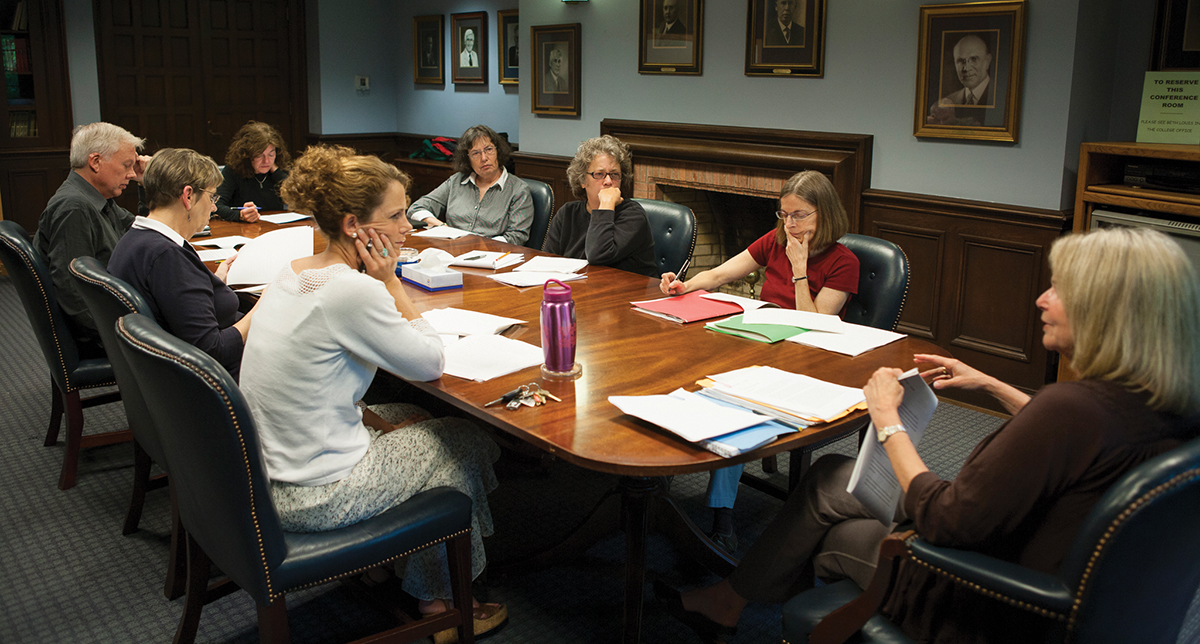
Elizabeth Lutyens class
The University of North Carolina Asheville is the home of the Great Smokies Writing Program (GSWP), a joint effort of the departments of English and Creative Writing and the Asheville Graduate Center. The program offers small workshops in various genres, lasting five to fifteen weeks. The workshops are open to all levels of writers, no experience necessary, and led by talented instructors and published writers. “There is no one type of Great Smokies student and many of our students simply wish to hone their writing skills in a supportive, stimulating environment,” says Jennifer McGaha, interim coordinator for the program. “We are open to writers of all levels and all backgrounds, so we’re the perfect fit for students at different points in their writing lives.”
Karen Jackson has been taking writing courses in the GSWP since 2008. “What keeps me returning to the program are two things: the outstanding faculty and the community of fellow writers who support one another long after a class has ended,” she says. “For me, that support has included critiquing one another’s work, encouraging one another to submit pieces for publication, and celebrating our successes. My chapbook, GRIT, which chronicles my sister’s adventures as an award-winning clown, and my full-length poetry collection The View Ever Changing, which explores the power of place and family ties, are filled with poems written in GSWP classes.”
Courses are available both online and in-person. Some five-week courses beginning in March include A Three Ring Circus: Expanding and Developing Your Poems with Tina Barr; Developing a Natural Style: Elizabeth Bishop Generative Poetry Workshop with Bruce Spang; and Social Media for Authors with Alli Marshall. The program will release its summer line-up of courses soon and registration often fills up quickly.
Marshall has been an instructor with the GSWP for more than a year. Past classes she’s taught include The Fantastic Ekphrastic, a workshop of creating writing inspired by other forms of artwork; and From Zero to Hero, a workshop on using the Hero’s Journey to write contemporary mythology based on one’s life stories. “I love that there are offerings for a wide range of writers in various genres and for many different skill levels,” she says. “This is an opportunity to write in community. Having a thoughtful, committed critique group is so important to any artist. Even though it can be intimidating at first, feedback is among the most crucial parts of the writing process.”
Because GSWP is offered through UNC Asheville, students earn course credit for the classes, and many go on to publish, attend fellowships and residences, and even complete MFA programs. But if a student is uninterested in those goals, it doesn’t limit their ability to enjoy and benefit from a GSWP course. “Creative spaces like GSWP allow people to come together and share stories, to wrestle with what it means to be alive in this particular time and place, to affirm the importance of storytelling and poetry in the world, and to feel more connected to one another,” says McGaha. “The work that comes out of our sessions is community-building work that does not begin or end in our classes but that has broader implications for the work we do in our day jobs, in our communities, and in the larger world.”






